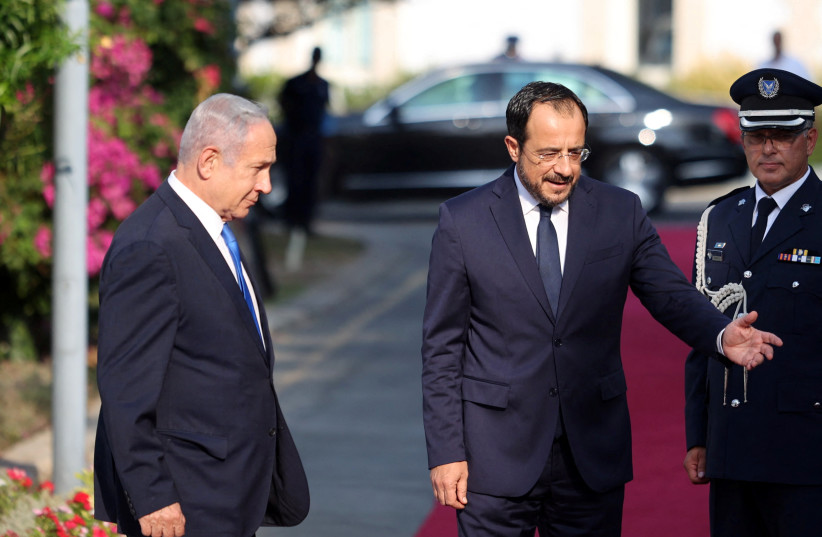Israel’s foreign policy score plummets amid diplomatic blunders
Israel scored poorly on MITVIM- The Israeli Institute for Regional Foreign Policy’s annual foreign policy index, according to a Monday release, receiving a final grade of 4.82 out of 10.
The survey was conducted in late July by the Rafi Smith Institute in conjunction with the Friedrich Ebert Foundation. Researchers polled 800 participants – men, women, Arabs, and Jews – who represented a realistic sample of Israel’s adult population. The reported margin of error was 3.5%.
This year marks the 11th iteration of MITVIM’s foreign policy index, and Israel has scored its lowest score in the last seven years. The questions covered such topics as:
- The impact of the Israeli government’s internal policies on the nation’s foreign relations, both in terms of judicial reform and the policies in the West Bank
- Future normalization within the Arab world, specifically with Saudi Arabia
- Iran’s progress toward nuclear weaponry
- The climate crisis
- Increasing Chinese involvement in Middle East affairs
- Israel’s policy regarding the war in Ukraine
Researchers further interviewed members of the Israeli public to understand their views on these topics.
 Cyprus President Nikos Christodoulides and Israeli Prime Minister Benjamin Netanyahu observe a guard of honour outside the Presidential Palace in Nicosia, Cyprus, September 3, 2023. (credit: YIANNIS KOURTOGLOU/REUTERS)
Cyprus President Nikos Christodoulides and Israeli Prime Minister Benjamin Netanyahu observe a guard of honour outside the Presidential Palace in Nicosia, Cyprus, September 3, 2023. (credit: YIANNIS KOURTOGLOU/REUTERS)“The survey shows significant gaps between the attitudes of the general public and the conduct of the Israeli government in terms of foreign policy,” said Dr. Gil Murciano, CEO of MITVIM. “[This is the] lowest score in the last seven years…The gaps that the survey reveals between public opinion and governmental policies are reflected in a number of important national issues, particularly with regard to the Palestinians and the Palestinian issue as it relates to foreign affairs.”
Almost a quarter of respondents gave Israel a 1 out of 10 in the field of foreign policy, which eventually brought its average to an underwhelming 4.82, down from 5.53 in 2022. Israel’s position on the global stage was given a 5.03 out of 10, another sharp drop from last year’s 5.85. Only 18% of respondents described Israel’s global standing as “good.”
The state of US-Israel relations received a 5.3 out of 10, another sharp drop from 2022’s 6.85.
Normalization with the Arab world
A majority (61%) of the Israeli public supports leveraging normalization with the Arab world in order to promote peace with the Palestinians and 41% are in favor of stopping the construction of Jewish settlements in the West Bank and evacuating existing outposts in order to establish normalization with Saudi Arabia.
“These findings make it possible to describe the 37th Knesset as a ‘political minority government,'” concluded Murciano.
Israel’s recent foreign affairs blunder
Israeli Foreign Minister Eli Cohen’s office on August 26 went public with his having met Najla Mangoush, his Libyan counterpart, in Italy earlier in the month. The statement came on the heels of an Israeli media report about the meeting.
The news triggered protests in Libya, which does not recognize Israel and where pro-Palestinian sentiment is strong, and led Prime Minister Abdulhamid al-Dbeibah to fire Mangoush.
Israeli Prime Minister Benjamin Netanyahu on Sunday appeared to shift blame to his top diplomat for the disclosure of a secret meeting with the Libyan foreign minister that has caused a backlash in Tripoli.
Reuters contributed to this report.





Comments are closed.